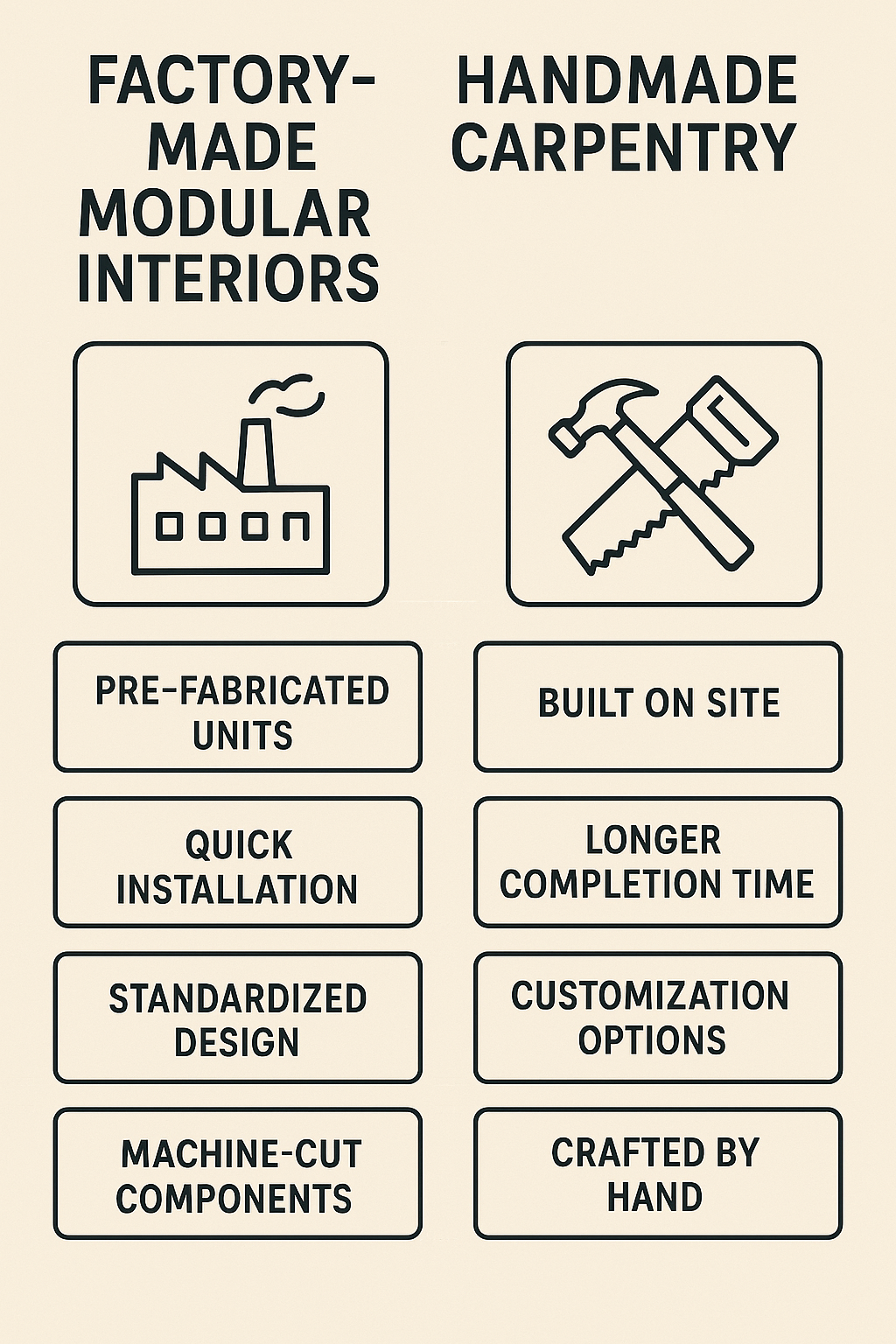In the evolving world of home interiors, the debate between factory-made modular products and traditional handmade carpentry has been a topic of discussion. While both have their merits, factory-made modular interiors offer distinct advantages that cater to modern homeowners’ needs. Here’s why you should consider making the switch.
Comparison Table
| Features | Factory-Made Modular Interiors | Handmade Carpentry |
| Precision and Consistency | Manufactured in controlled environments using advanced machinery, ensuring uniformity in design, dimensions, and finishes. This precision results in a polished and professional look. | Relies on manual labor, which can lead to variations in measurements and finishes, potentially affecting the overall aesthetic and functionality. |
| Time Efficiency | Components are pre-fabricated, allowing for quicker installation. Most modular setups can be installed within a few days, minimizing disruption to your daily life. | Building custom furniture or interiors on-site can take weeks or even months, leading to prolonged inconvenience. |
| Cost Transparency | Offer clear pricing structures. Once you finalize the design and materials, the cost is fixed, reducing the chances of unexpected expenses. | Costs can be unpredictable. Changes during the construction process or unforeseen challenges can lead to budget overruns. |
| Durability and Maintenance | Utilize high-quality materials designed for longevity. Additionally, individual components can be easily replaced or upgraded without overhauling the entire setup. | While durable, repairs or replacements often require significant effort and can disrupt the entire structure |
| Design Versatility | Provide a wide range of designs, finishes, and configurations. Whether you prefer a minimalist, contemporary, or traditional look, there’s a modular solution to match your style. | Customization is possible but may be limited by the carpenter’s skills and available materials. Achieving intricate or modern designs can be challenging. |
| Space Optimization | Designed with functionality in mind, modular units often include smart storage solutions like pull-out drawers, corner units, and vertical storage, maximizing available space. | While custom-built, traditional carpentry may not always incorporate modern space-saving techniques, potentially leading to underutilized areas. |
| Sustainability | Manufacturing processes are optimized to reduce waste. Additionally, many modular products are made from sustainable materials, aligning with eco-friendly practices. | May produce more waste due to on-site cutting and adjustments. The sustainability largely depends on the materials sourced and the carpenter’s practices. |

Conclusion
While handmade carpentry has its place, especially for bespoke pieces, factory-made modular interiors offer numerous advantages in terms of precision, efficiency, cost, and design flexibility. At Frentko, we specialize in providing high-quality modular interior solutions tailored to your needs. Explore our offerings and transform your living spaces with modern, functional, and stylish interiors.

0 Comments